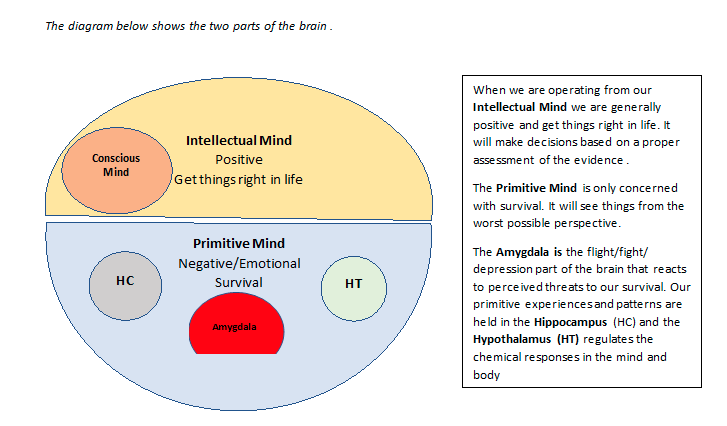How many of these symptoms are familiar to menopausal women?
- Depressed mood most of the day, or on most days
- Loss of interest or pleasure in most activities including those you used to enjoy
- Unintentional weight gain or increased appetite
- Insomnia
- Visibly restless or run-down
- Tired, fatigued, or no energy, decreased efficiency in completing tasks
- A sense of worthlessness or excessive feelings of guilt on most days
- Impaired ability to think, concentrate, or make decisions
- Recurrent thoughts of death, suicidal ideation, or suicide attempts.
The above is not a scale of mood symptoms in menopause. It is the scale doctors use to diagnose depression. A diagnosis of depression can be given when five of the symptoms, including the first two are present
What is the link between menopause and depression?
Why are the mental effects so strikingly similar?
One third of women will be diagnosed with depression during the years ranging from perimenopause to post-menopause. Most will be treated with antidepressants. In order to understand this link, we must first understand a bit of the neuroscience.
How the brain works
In evolutionary terms, we were cavewomen until very recently, and our brains have not evolved hugely since.
Humans are the only species that have an Intellectual Brain – the left prefrontal cortex. The conscious part of the brain, the part you know as YOU. It is used to interact with the world and enables us to visualise the future. It is logical, and positive. Positivity is not good for survival.
When there is a perception of impending danger or crisis, we flip to the Primitive Brain. The fight or flight part, where the Amygdala influences the production of stress hormones – adrenalines, to make us strong, to run or fight.
Our brains can only draw on past experience or behaviours
The brain cannot innovate. Intellectualising isn’t its job, and since you have never been through menopause before, it has few answers for you.
The last time you had feverish sweats you were very ill. Your brain will react as if you are again. This part of the brain can only be negative and think the worst. It must, to ensure your survival. It can only react in three ways. Anxiety, Anger or Depression.
If you are a menopausal cavewoman and your body suddenly feels unfamiliar, your brain thinks you are ill. Your reactions are slow. In your world full of wild animals and enemy tribesmen it pays to be vigilant and anticipate threats around every unseen corner. In other words, to be anxious. Anger is merely a primitive way to increase our strength in preparation to fight if we need to. If the world outside our cave was too inhospitable to go out and hunt today, if it was snowy and icy. We would stay in our cave, pulling our animal skins over our head to conserve the heat and energy, since we would have no food.
This we have adapted to modern day depression.
Our cavewoman brain is still operating in the same way. It sees every threat as a risk to our survival, and treats them as if our life is in danger.
The diagram below shows the two parts of the brain.
How can solution focused hypnotherapy help?
A solution focused hypnotherapist uses a combination of talking therapy and hypnosis. The therapy never delves into the past or looks for the cause of the issue at hand. It is uplifting, looking instead for the good in the client’s life, training the brain to create the neurological environment that creates the flow of serotonin in the brain. To reside more often in the positive Intellectual Brain, where good decisions are made, and things go well in life.
Anxiety and depression are created by thinking negatively – negatively projecting
There is no time like menopause for a woman to concentrate on the negative aspects. “I’m an empty husk”, “my husband won’t love me anymore”, “my youthful life is over, I am old now”.
These thoughts are embed as beliefs in the hippocampus. We don’t just think them once, but tell ourselves this repeatedly, strengthening the conviction and building feelings of hopelessness and stress. Often not sleeping well, so we get too little REM sleep. It is in REM we process all our emotions.
Granny was right. Sleep on it!
How often have you been really agitated by a series of annoying events all day, but when you wake the next morning you can relay them to someone else without emotion, and even laugh about it?
That is REM sleep at work, stripping the emotions out and leaving just the narrative memory. But without enough sleep those emotions build and build into anxiety.
Solution Focused Hypnotherapy
What a solution focused hypnotherapist does is to change the way your mind works. Helping you to notice the lovely moments in life, to re-engage with the things that bring the serotonin, and stop you dwelling on negative thoughts. Sleep better so you can reduce stress.
Hypnosis, or trance, is very common
How often do you drive somewhere and arrive realising you cannot recall the journey?
That is trance and we all do it many times a day. By using hypnosis at the end of a session we allow your mind to still, so that both parts of the brain can have a single focus. That way we can access the subconscious mind, so it can absorb the positive concepts we have discussed, which enables rapid results. Using a hypnosis recording at night will aid sleep .
Let’s Revisit that List
- Depressed mood most of the day, or most days – by teaching your brain to operate from the Intellectual Brain again, you will produce serotonin which will help lift depression.
- Loss of interest or pleasure most activities including those you used to enjoy – when you are no longer depressed you can enjoy life again.
- Unintentional weight gain or increase in appetite – this is a massive topic, but weight gain is exacerbated by cortisol – a stress hormone, and anxiety interrupts the brain’s ability to react to leptin, which is the chemical that suppresses appetite. Hypnotherapy is very effective in helping with weight management.
- Insomnia – reducing stress and anxiety will help with sleep as will listening to a hypnotherapy recording at bedtime.
- Visibly restless or run-down – restlessness is usually caused by an excess of adrenaline. Reduce the stress and the adrenaline is reduced. Better sleep improves a run down appearance.
- Tired, fatigued, or no energy, decreased efficiency completing tasks – being tired can be linked to overeating, where the insulin function is impaired and inflammation builds up in fatty tissue, and often in menopause by the reduction in testosterone. Better sleep and being more positive will help.
- A sense of worthlessness or excessive feelings of guilt most days – This is negative thinking, negatively forecasting the future, or introspecting about the past. Increased confidence comes with increased positivity. The perspective from shifting from the Primitive Brain that is always trying to look for past behaviours, that do not exist, so you don’t understand your behaviour
- Impaired ability to think, concentrate, or make decisions – Lack of sleep, operating from the Primitive Brain, concerned only with survival, rather than operating from the Intellectual Brain, which is able to innovate,imagine and make a proper assessment.
- Recurrent thoughts of death, suicidal ideation, or suicide attempts.
These stem from the feelings of worthlessness and a lack of hope for the future, therefore are solved by reducing depression.




